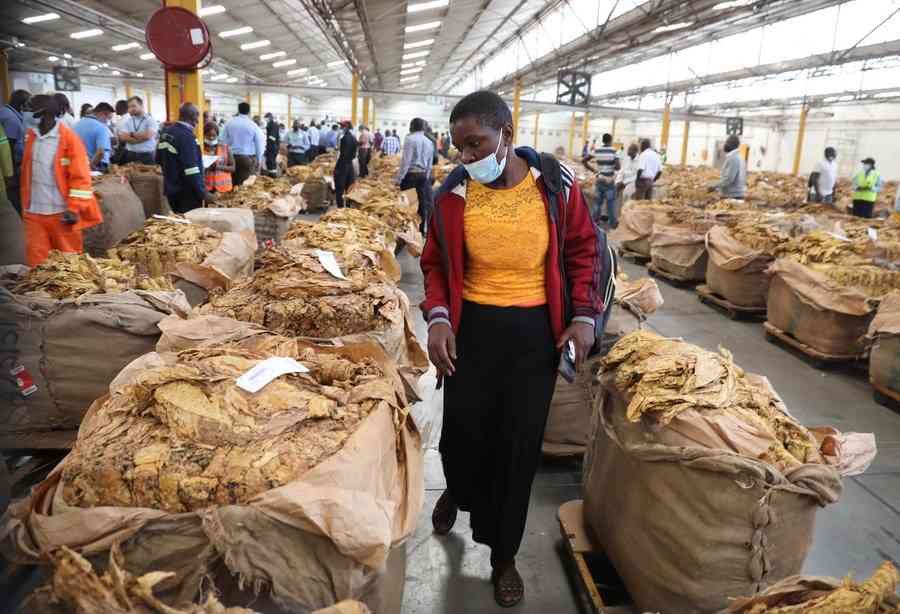
Zimbabwe’s government is violating citizens’ constitutional rights to clean water in its controversial push to privatise Harare’s water system, a leading campaigner warned this week.
The Economic Justice for Women’s Project (EJWP) said authorities’ move contravene Section 77 of the Constitution, which guarantees every citizen safe, clean and potable water.
It said privatising water will also pile heavy loads on the shoulders of women, who are already bearing the burden of Harare’s water crisis.
EJWP programmes lead Tanyaradzwa Jura told the Zimbabwe Independent the proposed reforms would entrench inequality, while worsening public health risks.
The EJWP plans to introduce a counter proposal in Parliament — the Water Justice Bill, aimed at reinforcing water as a basic human right and stopping its commodification.
“This decision risks undermining constitutional rights and increasing social inequalities, particularly gender inequality, whilst compromising public health,” Jura said.
Harare and Bulawayo residents already face harsh rationing, often relying on unsafe wells, boreholes, or private vendors charging up to 20 times municipal rates.
“We are pushing for this Bill because Zimbabwe is facing a deepening water crisis. In Harare, Bulawayo, and other high density areas, residents endure rationing, rely on unsafe wells and boreholes, and often turn to private vendors. The government’s plan to privatise water will worsen inequality, burden women and girls with more unpaid care work, and strip millions of their right to affordable water. Without intervention, water access will increasingly depend on ability to pay, not on human need,” she said.
- Chamisa party defiant after ban
- Gwanda accident victim seeks justice
- Village Rhapsody: How Zimbabwe can improve governance
- Zimbabwe fall in T20 opener
Keep Reading
Civil society groups echoed Jura’s concerns. Combined Harare Residents Association director Reuben Akili said privatisation was a direct assault on poor citizens.
“Privatisation of water is militating against the government policy of achieving a middle income by 2030 because privatisation means profit, and again, when you look at our people, they are very, very poor. So it is already sinking people further into poverty,” Akili said.
He warned accountability would collapse if control was handed to private players.
“The local authority has been charging commercial rates, but again when it is still in the hands of the local authority there is accountability, civic engagement, rapport between the local authority and its people, and even the government with its people. But when these services are then handed over to private individuals, they are not accountable to the people; they are accountable to those who have been giving them contracts. This cripples accountability mechanisms, fuels corruption, and can even lead to the total collapse of services.”
Akili pointed to earlier prepaid water metering pilots in Kambuzuma and Sunningdale, which failed, saying they raise doubts over whether the true purpose of the current plan is to improve services or to enrich politically-connected elites.
The warnings come as Harare stumbled into a service crisis this week.
For about one month, parts of the capital have gone without piped water for up to six days a week. With taps running dry, women have been forced to wake before dawn to fetch water from shallow wells and the polluted Mukuvisi River. For many, the daily routine now includes carrying heavy buckets across long distances, while children risk disease from contaminated sources.
The situation recalls the 2008/2009 cholera outbreak, when more than 4 000 people died nationwide.
It was the deadliest epidemic in recently history, apart from the Covid-19 pandemic. Public health experts fear another catastrophe could be looming as Harare’s water infrastructure crumbles.
The Harare City Council says it is hamstrung by financial woes. The municipality is owed more than ZiG8 billion (about US$25 million).
The government is listed as the biggest debtor.
The arrears were disclosed in council’s recent debtor’s age analysis report, presented during a clean-up blitz dubbed CBD Order Restoration. The operation, targeting unlicensed businesses and property owners in arrears, has already shuttered more than
2 000 shops in two months.
Council acting head of revenue collection Alfred Guni said the bulk of the debt lies with residential property owners, who owe ZiG5 billion, followed by commercial and industrial players. Government ministries, parastatals and dormitory towns are also on the list of major defaulters.
“The city is urging its stakeholders to urgently clear their debts,” Guni said, warning that continued non-payment threatens service delivery and the city’s operational efficiency.
Officials warn if arrears persist, residents risk losing property and businesses could be closed through court orders.
But residents argue council’s billing chaos is the real problem. Harare Residents Trust director Precious Shumba said inflated and inaccurate bills, combined with systemic corruption, have crippled trust in the municipality.
“The City of Harare is in no position to expect residents to pay the inflated amounts that they are playing around with,” Shumba said.
He accused officials of presiding over fraudulent billing practices, including converting US dollar cash payments into ZiG transactions for personal gain.
“The lack of a billing system has become a milking venture for most council workers in the finance department. There is no accurate recording of revenues and expenditures. Therefore, the Harare Residents Trust denounces the holier-than-thou attitude being displayed by the corrupt and inefficient officials in the City of Harare,” Shumba said.
He added that the finance department requires a substantive director, warning that retired officials were being “imposed” by councillors to perpetuate looting through premature payments to contractors who fail to deliver.
“The City of Harare is losing millions of dollars to deceptive service providers. Residents reject the claim that they owe so much to council. An accurate billing system is the priority solution to address financial leakages,” Shumba said.
The government’s plan includes transferring the city owned Morton Jaffray Water Treatment Plant to private hands.
Government has already piloted “smart meters” in 15 000 households as part of its commercialisation agenda. Officials argue this will modernise water management, reduce losses, and stabilise supply.
But civil society says the risks far outweigh the promises. By making water a commodity, critics argue, the government is effectively retreating from its constitutional duty to guarantee universal access.
If implemented, analysts warn, Harare’s poor will face exclusion while politically connected elites carve profit out of an essential public service.
The crisis has left Zimbabwe’s capital trapped between two options: a broke - municipality unable to maintain water infrastructure, and a privatisation model that could strip millions of the poor of their constitutional rights.











